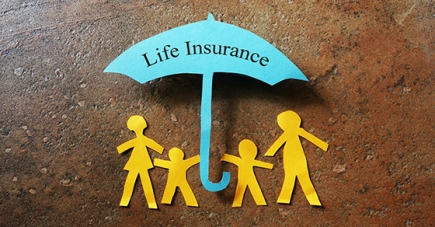3 pitfalls to avoid when naming a beneficiary of a life insurance policy
Life insurance can be a powerful financial and estate planning tool, but its benefits can be reduced or even eliminated if you designate the wrong beneficiary or fail to change beneficiaries when your circumstances change.
Common pitfalls to avoid include:
- Naming your estate as beneficiary. Doing so can subject life insurance proceeds to unnecessary state inheritance taxes (in many states), expose the proceeds to your estate’s creditors and ensure that the proceeds will go through probate, which may delay payment to your loved ones.
- Naming minor children as beneficiaries. Insurance companies won’t pay life insurance proceeds directly to minors, which means a court-appointed guardian (who, if you’re divorced, could be your former spouse) will manage the funds until your minor-age children reach the age of majority. A better approach is to designate a trust as beneficiary. This allows you to determine who will manage the funds and how they’ll be distributed to your children.
- Naming your former spouse as beneficiary. It’s unlikely that you’d do this intentionally. But if you get divorced and neglect to designate a new beneficiary, this could be the result (even if you’ve updated your will or trust).
For many people, an effective strategy is to establish an irrevocable life insurance trust (ILIT) to purchase and own a life insurance policy and to designate the ILIT as the policy’s beneficiary.
If you’re unsure of whom to name as beneficiary of your life insurance policy or retirement plan or would like to learn about more ways to provide for your minor children, please contact us.
© 2019
You have options when addressing life insurance in your estate plan
Life insurance has long provided a source of liquidity to pay estate taxes and other expenses. But, with the estate tax exemption currently set at an inflation-adjusted $10 million ($11.40 million for 2019), estate taxes are no longer a concern for many families. Nonetheless, life insurance offers many benefits for nontaxable estates.
If you own life insurance policies at your death, the proceeds will be included in your taxable estate. Ownership is usually determined by several factors, including who has the right to name the beneficiaries of the proceeds. If estate taxes are a concern, the way around this problem is to not own the policies when you die. However, don’t automatically rule out your ownership, either.
4 possible owners
To choose the best owner, consider why you want the insurance. Do you want to replace income? Provide liquidity? Or transfer wealth to your heirs? And how important are tax implications, flexibility, control, and cost and ease of administration? Here are four types of owners:
1. You or your spouse. There are several nontax benefits to your ownership, primarily relating to flexibility and control. The biggest drawback is estate tax risk. Ownership by you or your spouse generally works best when your combined assets, including insurance, won’t place either of your estates into a taxable situation.
2. Your children. Ownership by your children works best when your primary goal is to pass wealth to them. On the plus side, proceeds aren’t subject to estate tax on your or your spouse’s death, and your children receive all of the proceeds tax-free. On the minus side, policy proceeds are paid to your children outright. This may not be in accordance with your estate plan objectives and may be especially problematic if a child has creditor problems.
3. Your business. Company ownership or sponsorship of insurance on your life can work well when you have cash flow concerns related to paying premiums. Company sponsorship can allow premiums to be paid in part or in whole by the business under a split-dollar arrangement. But if you’re the controlling shareholder of the company and the proceeds are payable to a beneficiary other than the business, the proceeds could be included in your estate for estate tax purposes.
4. An ILIT. A properly structured irrevocable life insurance trust (ILIT) could save you estate taxes on any insurance proceeds. The trust owns the policy and pays the premiums. When you die, the proceeds pass into the trust and aren’t included in your estate. The trust can be structured to provide benefits to your surviving spouse and/or other beneficiaries.
Questions and answers
If you’re planning to include life insurance in your estate plan but are unsure of the best way to do so, contact us. Given your circumstances, we can help you determine who should own the policy.
© 2019
Life insurance can be a powerful estate planning tool for nontaxable estates
For years, life insurance has played a critical role in estate planning, providing a source of liquidity to pay estate taxes and other expenses. Today, the gift and estate tax exemption has climbed to $11.4 million, so estate taxes are no longer a concern for the vast majority of families. But even for nontaxable estates, life insurance continues to offer estate planning benefits.
Replacing income and wealth
Life insurance can protect your family by replacing your lost income. It can also be used to replace wealth in a variety of contexts. For example, suppose you own highly appreciated real estate or other assets and wish to dispose of them without generating current capital gains tax liability. One option is to contribute the assets to a charitable remainder trust (CRT).
As a tax-exempt entity, the CRT can sell the assets and reinvest the proceeds without triggering capital gains tax. In addition, you and your spouse will enjoy an income stream and charitable income tax deductions. Typically, distributions you receive from the CRT are treated as a combination of ordinary taxable income, capital gains, tax-exempt income and tax-free return of principal.
After you and your spouse die, the remaining trust assets pass to charity. This will reduce the amount of wealth available to your children or other heirs. But you can use life insurance (a cost-effective second-to-die policy, for example) to replace that lost wealth.
You can also use life insurance to replace wealth that’s lost to long term care (LTC) expenses, such as nursing home costs, for you or your spouse. Although LTC insurance is available, it can be expensive, especially if you’re already beyond retirement age. For many people, a better option is to use personal savings and investments to fund their LTC needs and to purchase life insurance to replace the money that’s spent on such care. One advantage of this approach is that, if neither you nor your spouse needs LTC, your heirs will enjoy a windfall.
Finding the right policy
These are just a few examples of the many benefits provided by life insurance. We can help determine which type of life insurance policy is right for your situation.
© 2019

Walls & Associates is a certified public accounting firm serving the needs of businesses and individuals in the tri-state area of West Virginia, Kentucky, and Ohio. We are confident that regardless of size, we can fulfill your financial and tax accounting needs – whether it is a simple individual tax return, a consolidated multi-state corporate tax return, a nonprofit tax return, or general bookkeeping.
CONTACT US
-
Milton Office Location:
Phone: 304-390-5971
1025 N. Main Street
Milton, WV 25541 -
Hamlin Office Location:
Phone: 304-824-3880
19 3rd Street
Hamlin, WV 25523
WORKING HOURS
| Monday | 8:30 am - 5:00 pm |
| Tuesday | 8:30 am - 5:00 pm |
| Wednesday | 8:30 am - 5:00 pm |
| Thursday | 8:30 am - 5:00 pm |
| Friday | 8:30 am - 5:00 pm |
| Saturday | Closed |
| Sunday | Closed |


